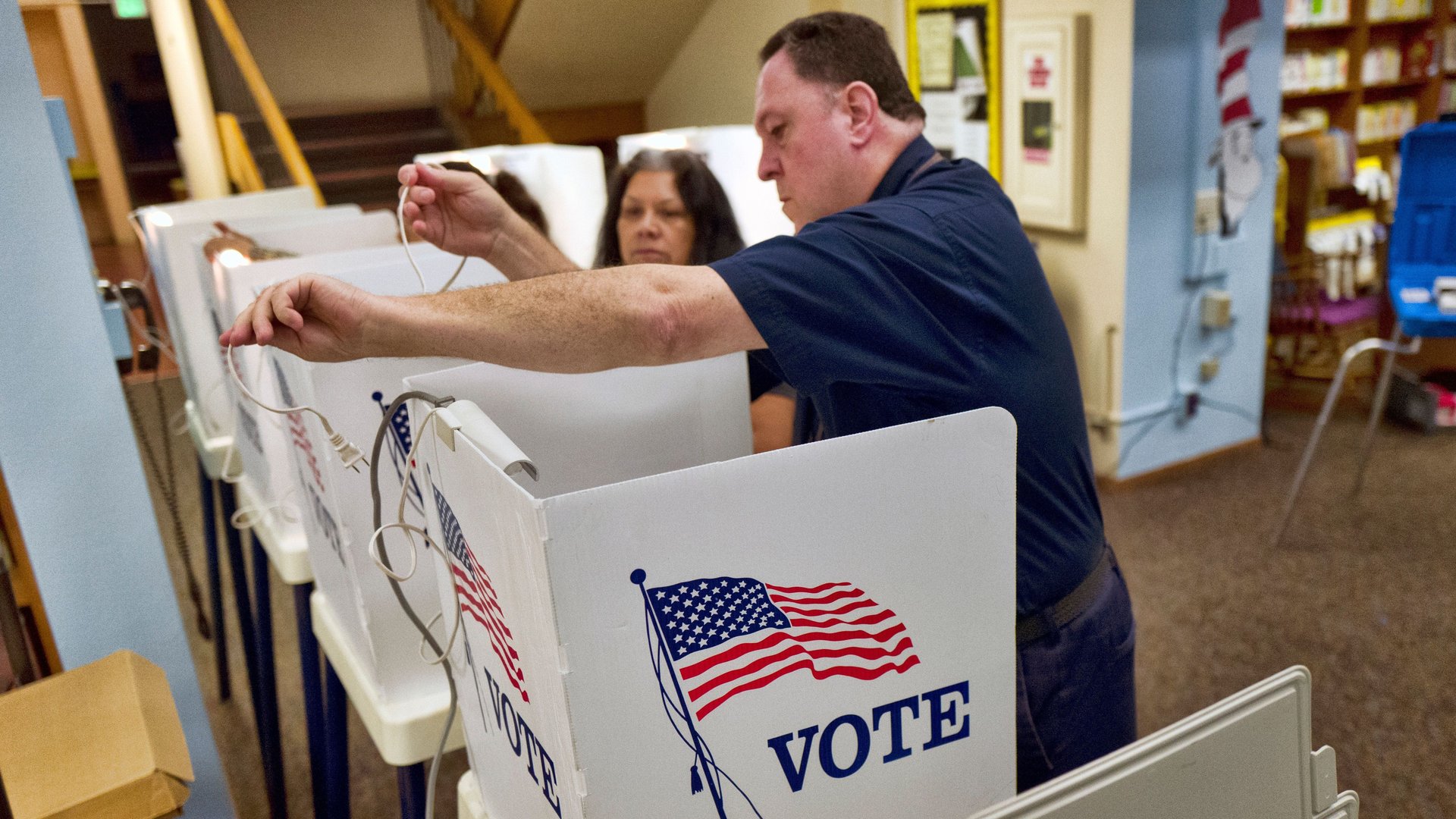US elections are held on a Tuesday thanks to 19th century farmers
US election day is Tuesday, Nov. 6, and as the date draws near, voters are registering in droves (thanks, Taylor Swift?) and making plans to get themselves and their neighbors to the polls. The US is an anomaly when it comes to election-day timing—most other countries vote on Saturday or Sunday—and has been cited as a barrier to voter participation; 14% of non-voters in the 2016 election say they skipped out on voting because they were too busy or had a conflicting work or school schedule.


US election day is Tuesday, Nov. 6, and as the date draws near, voters are registering in droves (thanks, Taylor Swift?) and making plans to get themselves and their neighbors to the polls. The US is an anomaly when it comes to election-day timing—most other countries vote on Saturday or Sunday—and has been cited as a barrier to voter participation; 14% of non-voters in the 2016 election say they skipped out on voting because they were too busy or had a conflicting work or school schedule.
To understand why the US is an outlier in this regard, we need to go back to 1845, the year Congress declared that the first Tuesday after the first Monday in November would be election day. Back then, lawmakers assumed voters, then all white men, had three constraints:
- voters may be farmers who would mostly be done with harvest by November, but would need to be in town for market day, usually held on Wednesdays
- traveling on the Sabbath (Sunday) was a no-go
- voters may be celebrating All-Saints Day on November 1
Given that it took people back then a long time to get around—trains, boats, or horse-and-buggy were your main options—voting on a Tuesday seemed most reasonable, given constraints one and two: voters had all of Monday to travel to their county seat, vote on Tuesday, and be back for the Wednesday market. And indicating that election day must be the first Tuesday after the first Monday ensured that voting wouldn’t coincide with All-Saints Day.
In short: Americans vote on Tuesdays because that’s what made the most sense 173 years ago.
Attempts at reform have failed so far. Former US representative Steve Israel, a democrat from New York tried several times to advance legislation moving election day to a weekend, and in 2017, senator Jack Reed, a Rhode Island democrat, and the late representative Louise Slaughter, a New York democrat, tried again, but we’re still voting on Tuesday.
Though weekend voting could improve overall turnout, it’s not a panacea. A weekend vote privileges white-collar voters who are more likely to have a traditional Saturday-Sunday weekend. In Inc magazine, Suzanne Lucas points out that even if election day were a federal holiday, retail and restaurant employees would still be working; the same goes for a weekend election day. Hospitals, shops, and eateries would remain staffed, and the quarter of Americans that work jobs with no paid time off, would be unlikely to enjoy a holiday on election day. That number lines up with poll results: the Economic Policy Institute estimates that a quarter of US workers report in on Labor Day, and another poll found that a quarter of US workers say they’ll be required to work Christmas, Thanksgiving, or New Year’s, while an additional 20% said there’s a chance they’d be called in.
Then there are the more systemic issues. Other reasons non-voters gave for shirking the 2016 vote included “didn’t like candidates or campaign issues” (25%) and “felt vote wouldn’t make a difference” (15%). Unfortunately, changing election day won’t do much to solve disillusionment.